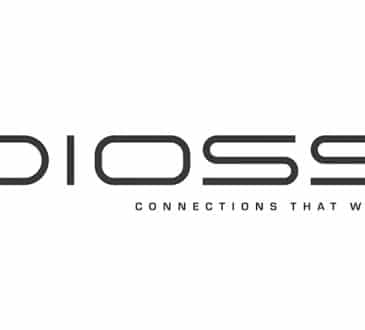4 Leadership Tips for Guiding Your Employees Through Change

Effective leadership is crucial during organizational change to maintain trust and engagement. Research reveals that only 43% of workers support change, emphasizing the need for proactive leadership. To guide your team through change, prioritize openness, honesty, employee involvement, and celebrating positive outcomes to foster a culture of trust and optimism.
If you’re part of a company that’s been around for a while, you’ll inevitably undergo organizational and operational changes. The transformation process can be quite healthy and necessary for the long-term viability of the business. Nonetheless, change can cause many problems if you’re not prepared to guide your team through the process.
How much damage can happen to the inner workings of your company when change isn’t managed well — or at all? Quite a bit, especially to the employer-employee bond. According to recent research from Gartner, only 43% of workers said they’d support change within their business. And just 36% agreed that they generally had high trust in their companies. Combined with Gallup poll figures that put employee engagement at 32%, those are scary numbers that point to the need for you to take a proactive stance toward managing change.
Yet it can be very difficult to know exactly what to do (and what not to do) in terms of helping your team members feel better when changes are ahead. If you’re unsure how to make sure you’re leading your people toward change positively and transparently, consider trying four recommendations.
- Talk about changes openly.
It can be very hard to know when to announce an impending change. One thing’s for sure, though: You don’t want to spring major changes on your staff. You won’t appreciate feeling like you’ve had important information withheld from you. It makes you feel disrespected. Interestingly, disrespect was one of the top three reasons employees told Pew Research they quit a job in 2021. In other words, if your leaders keep change “under wraps” for too long, you could lose good employees. - Be honest and transparent.
Let’s say your company plans to set a succession strategy to give high performers more upward mobility. However, the organization will change how it’s set up to make the strategy work. Though this is a smart change, it may leave some people with questions like “How will this affect my position?” and “Am I being considered for a promotion opportunity?”Rather than allowing employees to sit and wonder about their futures, consider holding an in-person or online town hall-style meeting. The event should be an open forum for your leaders to introduce the change and then respond to questions about it from employees. As noted in a SHRM piece, town halls provide a rare chance for employees to have direct access to senior leaders and executives. Just be sure your leaders are ready to answer the “tough stuff” by prepping beforehand. You want them to show up as authentic, empathetic, and confident.
- Involve employees in the change process.
One of your main worries about change is that it will take away the need for your skills. For instance, your company might want to bring more automation. Though automation could improve everyone’s efficiency, some employees may feel that automated software will reduce their ability to contribute. Remember: Seventy percent of people connect their purpose with their occupations, per McKinsey & Company. Therefore, your leaders should be ready to help your team members find their new (or continuing) purpose. For example, your leaders might want to explain that automation will free up employees to work on higher-level duties. Plus, automation can assist them in doing their jobs more accurately, which would benefit the company and its customers. Though their day-to-day routines may change, their contribution to the organization’s vision and mission will remain the same. - Celebrate the successes of change.
As a leader, you’ll also face the effects of change. Allow your people to see that. Be open about your feelings and experiences. But don’t dwell on the challenges. Just acknowledge them, deal with them, and move forward. Sooner or later, you should see some positives from the changes. Take the opportunity to celebrate the wins, such as when your awards company achieves a record number of customer satisfaction ratings, or your profit margins improve significantly.
In addition, CEOs should be mindful of the following:
- Be a role model for change. Show employees that you are willing to embrace change and are confident in its ability to strengthen the organization.
- Create a culture of trust and openness. Employees are more likely to support change if they trust their leaders and their voices are heard.
- Provide clear and consistent communication. Employees need to know what to expect and when to expect it. Make sure that your communication is clear, concise, and consistent.
- Be patient and understanding. Change takes time. Don’t expect employees to embrace change overnight. Be patient and understanding as they adjust to the new way of doing things.
A good way to celebrate the effects of change is to share inspiring “boots on the ground” stories. Maybe your customer satisfaction ratings have never been higher — that’s something to celebrate. Or perhaps your profit margins are stronger since implementing changes, and you can give workers an unexpected quarterly bonus. Make it known whenever you see something exciting happening due to your organization’s recent changes. Never assume that everyone will make the connection between the change and the outcome.
The truth is that change can be simultaneously hard and rewarding. Your role as a leader is to help your team navigate upcoming changes without becoming too stressed or negative. And the best way to make that happen is to aim for transparency, genuineness, kindness, and optimism.
Have you read?
World’s Most Influential and Innovative Companies.
World’s Best Hospitality And Hotel Management Schools.
The world’s top 50 most popular luxury brands for 2023.
Richest Tennis Players In The World.
Richest Actors In The World.
Add CEOWORLD magazine to your Google News feed.
Follow CEOWORLD magazine headlines on: Google News, LinkedIn, Twitter, and Facebook.
Copyright 2024 The CEOWORLD magazine. All rights reserved. This material (and any extract from it) must not be copied, redistributed or placed on any website, without CEOWORLD magazine' prior written consent. For media queries, please contact: info@ceoworld.biz








